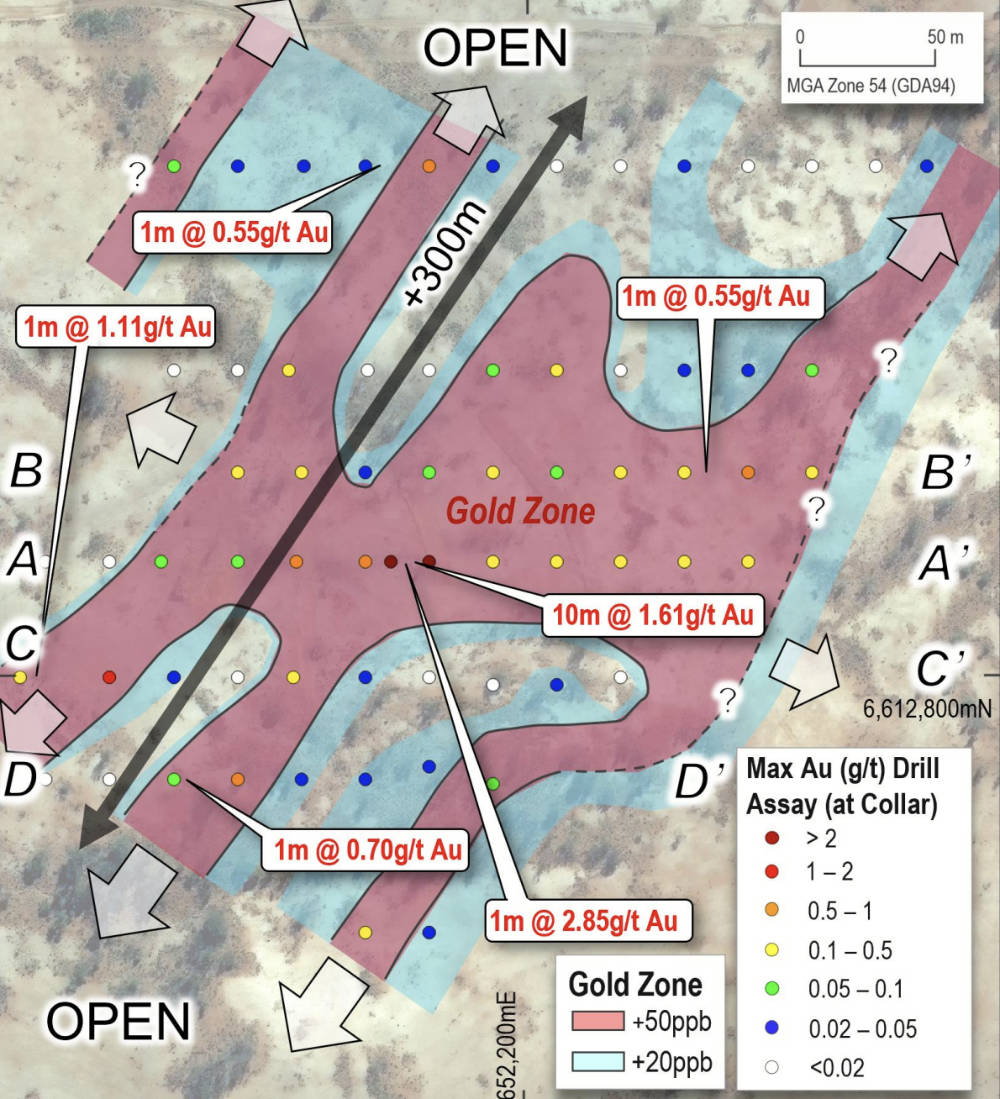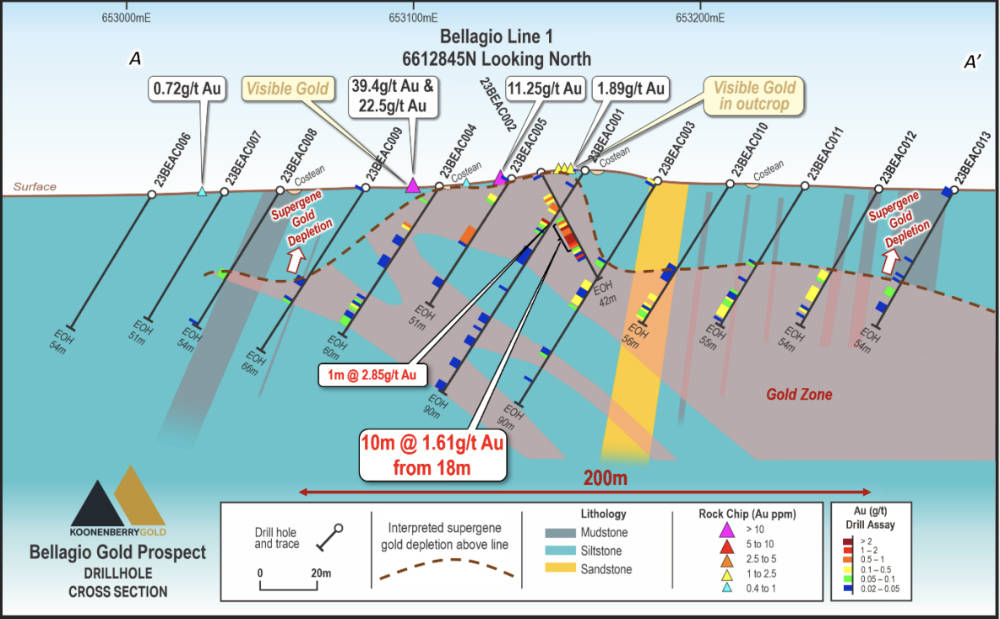Could Bellagio host a significant gold system? Koonenberry Gold plans more drilling to find out

Koonenberry will carry out drilling to determine if the fresh rock beneath the gold-bearing oxidised rocks hosts richer mineralisation. Pic: mixetto via Getty Images.
- First pass aircore drilling outlines 300m by 200m gold zone at Bellagio Gold Prospect in NSW
- Most anomalous gold results occur consistently towards bottom of hole
- Fresh rock below the base of oxidation can host richer mineralisation in similar geological settings and environments, like De Grey’s 9.5Moz Hemi deposit
- Further drilling is planned to define extent of mineralisation and assess gold potential at depth in fresh rock
Koonenberry Gold’s first pass aircore drilling has outlined extremely encouraging and widespread gold mineralisation at Bellagio, part of its namesake Project in NSW.
Koonenberry Gold has a commanding +2,060km2 position in the Koonenberry Belt, an emerging exploration district in northwest NSW with enormous gold and copper potential.
It is considered highly prospective for large scale orogenic gold systems and is thought to be an extension of Victoria’s rich Stawell Zone that has recorded +5Moz of historical gold production.
Previous exploration by Koonenberry Gold (ASX:KNB) has already identified sufficient geological evidence to indicate potential to host significant gold systems.
This includes widespread gold nugget fields and the presence of deformed turbidite sequences that correspond to those extensively exploited for gold in Victoria, and extensive mapped auriferous quartz veins.
Subsequently, assaying of only the second hole in the company’s maiden drill program at the Bellagio Prospect returned a 10m intercept grading 1.61 grams per tonne (g/t) gold from a down-hole depth of just 18m.
All the signs are there.
Significant mineralised system

The receipt of further drill intercepts from the 67-hole Aircore program has now confirmed that widespread gold mineralisation is present at Bellagio over a broad 300m by 250m zone.
Koonenberry says the results are extremely encouraging and potentially represent a significant mineralised system which remains open laterally, along strike and at depth.
Notable intercepts besides the second hole are 1m at 2.85g/t gold from 21m and 6m at 0.56g/t gold from 21m.
Significantly, most of the anomalous gold results occur towards bottom of hole with strong evidence of gold leaching and supergene depletion in the highly weathered zone.
This is significant as in similar geological settings and environments, the fresh rock below the base of oxidation – which is yet to be drilled — can host mineralisation with higher grades, widths, and continuity than in the highly weathered zone.
“The significance of these results from first pass Aircore drilling cannot be understated. To define a broad zone of gold mineralisation over a >300m x 250m area with our first drilling program at Bellagio is rare in my experience and is extremely encouraging,” managing director Dan Power said.
“Our geological understanding continues to grow and we are seeing consistent evidence of supergene depletion in the highly weathered upper saprolite. It is commonplace in the industry to see anomalous gold results in shallow Aircore drilling becoming much better in the fresh rock below the base of oxidation.
“Perhaps the best example of this in recent years has been the discovery of the +9.5Moz Hemi gold system in the Pilbara by De Grey Mining, which was discovered under both 30-40m of transported cover and a 25m vertical zone of oxidised rocks.
“First pass Aircore drilling at Hemi generally contains only relatively low levels of gold towards the bottom of hole compared to the fresh rock at depth.”

More drilling planned
Follow-up Aircore drilling is being planned to assess the size potential of the system.
Deeper reverse circulation and diamond drilling will also assess the potential of the system to host higher grades and widths of gold mineralisation in the fresh rock.
This article was developed in collaboration with Koonenberry Gold, a Stockhead advertiser at the time of publishing.
This article does not constitute financial product advice. You should consider obtaining independent advice before making any financial decisions.
Related Topics

UNLOCK INSIGHTS
Discover the untold stories of emerging ASX stocks.
Daily news and expert analysis, it's free to subscribe.
By proceeding, you confirm you understand that we handle personal information in accordance with our Privacy Policy.








